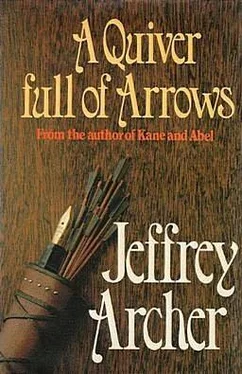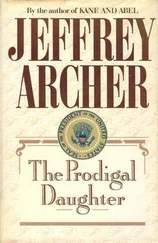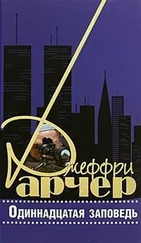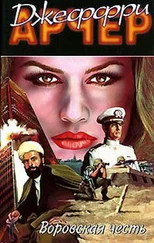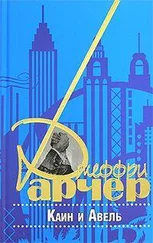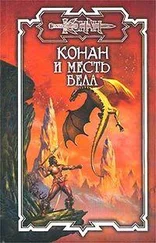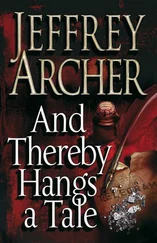He sat alone in his room for the rest of the day, interrupted only by what he thought was the sound of gunfire in the distance. He read the New Federal Capital Project proposal and his advisers’ reports for a third time.
The next morning Eduardo, dressed in the same suit as he had worn on the day of his arrival, was greeted by his secretary with the news that the coup had been crushed; after fierce street fighting, he informed his unusually attentive chairman, the old regime had regained power but not without losses; among those killed in the uprising had been General Mohammed, the Head of State. The secretary’s news was officially confirmed on Radio Nigeria later that morning. The ringleader of the abortive coup, Lieutenant Colonel Dimka, along with one or two junior officers, had escaped, and the government had ordered a dusk-to-dawn curfew until the evil criminals were apprehended.
Pull off a coup and you’re a national hero, fail and you’re an evil criminal; in business it’s the same difference between bankruptcy and making a fortune, thought Eduardo as he listened to the news report. He was beginning to form plans in his mind for an early departure from Nigeria when the newscaster made an announcement that chilled him to the very marrow.
“While Lieutenant Colonel Dimka and his accomplices remain on the run, airports throughout the country will be closed until further notice.”
When the newscaster had finished his report, martial music was played in memory of the late General Mohammed.
Eduardo went downstairs in a flaming temper. The hotel was still surrounded by armed guards. He stared at the fleet of six empty Mercedes which was parked only ten yards beyond the soldiers’ rifles. He marched back into the foyer, irritated by the babble of different tongues coming at him from every direction. Eduardo looked around him: it was obvious that many people had been stranded in the hotel overnight and had ended up sleeping in the lounge or the bar. He checked the paperback rack in the lobby for something to read, but there were only four copies left of a tourist guide to Lagos; everything else had been sold. Authors who had not been read for years were now changing hands at a premium. Eduardo returned to his room, which was fast assuming the character of a prison, and balked at reading the New Federal Capital Project for a fourth time. He tried again to make contact with the Brazilian Ambassador to obtain special permission to leave the country since he had his own aircraft. No one answered the Embassy phone. He went down for an early lunch only to find that the dining room was once again packed to capacity. Eduardo was placed at a table with some Germans who were worrying about a contract that had been signed by the government the previous week, before the abortive coup. They were wondering if it would still be honored. Manuel Rodriguez entered the room a few minutes later and was placed at the next table.
During the afternoon, de Silveira ruefully examined his schedule for the next seven days. He had been due in Paris that morning to see the Minister of the Interior, and from there should have flown on to London to confer with the chairman of the Steel Board. His calendar was fully booked for the next ninety-two days until his family holiday in May. “I’m having this year’s holiday in Nigeria,” he commented wryly to an assistant.
What annoyed Eduardo most about the coup was the lack of communication it afforded with the outside world. He wondered what was going on in Brazil and he hated not being able to telephone or telex Paris or London to explain his absence personally. He listened addictively to Radio Nigeria on the hour every hour for any new scrap of information. At five o’clock he learned that the Supreme Military Council had elected a new President, who would address the nation on television and radio at nine o’clock that night.
Eduardo de Silveira switched on the television at eight forty-five; normally an assistant would have put it on for him at one minute to nine. He sat watching a Nigerian lady giving a talk on dressmaking, followed by the weather forecast man, who supplied Eduardo with the revealing information that the temperature would continue to be hot for the next month. Eduardo’s knee was twitching up and down nervously as he waited for the address by the new President. At nine o’clock, after the national anthem had been played, the new Head of State, General Obasanjo, appeared on the screen in full dress uniform. He spoke first of the tragic death and sad loss for the nation of the late President and went on to say that his government would continue to work in the best interest of Nigeria. He looked ill at ease as he apologized to all foreign visitors who were inconvenienced by the attempted coup but went on to make it clear that the dusk-to-dawn curfew would continue until the rebel leaders were tracked down and brought to justice. He confirmed that all airports would remain closed until Lieutenant Colonel Dimka was in custody. The new President ended his statement by saying that all other forms of communication would be opened up again as soon as possible. The national anthem was played for a second time, as Eduardo thought of the millions of dollars that might be lost to him by his incarceration in that hotel room, while his private plane sat idly on the tarmac only a few miles away. One of his senior managers made book as to how long it would take for the authorities to capture Lieutenant Colonel Dimka; he did not tell de Silveira how short the odds were on a month.
Eduardo went down to the dining room in the suit he had worn the day before. A junior waiter placed him at a table with some Frenchmen who had been hoping to win a contract to drill for oil in the Niger state. Again Eduardo waved a languid hand when they tried to include him in their conversation. At that very moment he was meant to be with the French Minister of the Interior, not with some French oil drillers. He tried to concentrate on his watered-down soup, wondering how much longer it might be before it would be just water. The headwaiter appeared by his side, gesturing to the one remaining seat at the table, in which he placed Manuel Rodriguez. Still neither man gave any sign of recognizing the other. Eduardo debated with himself whether he should leave the table or carry on as if his oldest rival was still in Brazil. He decided the latter was more dignified. The Frenchmen began an argument among themselves as to when they would be able to get out of Lagos. One of them declared emphatically that he had heard on the highest authority that the government intended to track down every last one of those involved in the coup before they opened the airports and that might take up to a month.
“What?” said the two Brazilians together, in English.
“I can’t hang around here for a month,” said Eduardo.
“Neither can I,” said Manuel Rodriguez.
“You’ll have to, at least until Dimka is captured,” said one of the Frenchmen, breaking into English. “So you must both relax yourselves, yes?”
The two Brazilians continued their meal in silence. When Eduardo had finished he rose from the table and without looking directly at Rodriguez said good night in Portuguese. The old rival inclined his head in reply.
The next day brought forth no new information. The hotel remained surrounded with soldiers and by the evening Eduardo had lost his temper with every member of his staff with whom he had come into contact. He went down to dinner on his own and as he entered the dining room he saw Manuel Rodriguez sitting alone at a table in the corner. Rodriguez looked up, seemed to hesitate for a moment, and then beckoned to Eduardo. Eduardo himself hesitated before walking slowly toward Rodriguez and taking the seat opposite him. Rodriguez poured him a glass of wine. Eduardo, who rarely drank, drank it. Their conversation was stilted to begin with, but as both men consumed more wine they each began to relax in the other’s company. By the time coffee had arrived, Manuel was telling Eduardo what he could do with this godforsaken country.
Читать дальше
